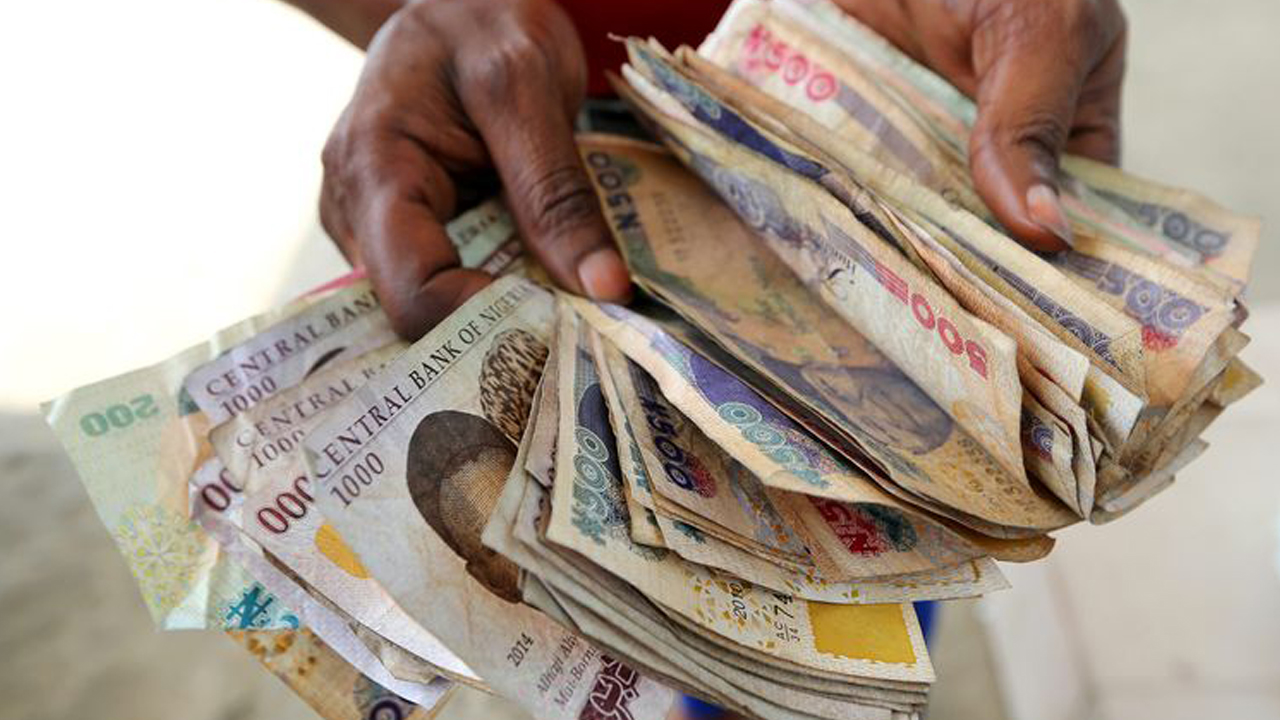
Experts are raising alarms as Nigeria’s currency, the Naira, continues to decline, with the exchange rate soaring to ₦1,740/$1 in the parallel market following weekend trading.
Reports indicate that while the Naira showed signs of stability and slight appreciation in the Nigerian Autonomous Foreign Exchange Market (NAFEM), market participants anticipate imminent intervention from the Central Bank of Nigeria (CBN) to alleviate the mounting pressure on the exchange rate.
Data from the FMDQ revealed that the indicative exchange rate for NAFEM fell to ₦1,600 per dollar from ₦1,601.2 per dollar last Thursday, marking a ₦1.2 appreciation for the Naira.
Traders who spoke with Vanguard over the weekend expect the exchange rate to stabilize around ₦1,750/$1 by the end of the month, with projections for 2024 suggesting it could surpass ₦1,800/$1.
If this trend continues, the local currency will have erased the gains it made in March of this year, when it saw a significant appreciation from an all-time high of ₦1,820/$1 in February 2024 to ₦1,310/$1, eventually dropping to ₦1,240/$1.
This appreciation was disrupted in April, leading to a prolonged period of depreciation that persisted until last week.
Year-on-year, the Naira has depreciated by 70.5 percent in the parallel market, closing at ₦1,705 per dollar at the end of third-quarter trading on September 30, 2024, compared to an average of ₦1,000/$1 in September 2023.
Year-to-date, the currency has declined by 16.7 percent from ₦1,490/$1 in January 2024.
In the official segment, NAFEM, the Naira faced a substantial year-on-year depreciation of 104%, reaching ₦1,540.78 per dollar in September 2024, compared to ₦755.27 in September 2023.
In contrast, the year-on-year depreciation for NAFEM was more modest at 9.9%, with the rate moving to ₦1,600 per dollar last weekend from ₦1,455.9 per dollar in January 2024.
Market analysts and traders attribute the ongoing decline of the local currency to persistent supply shortages. However, monetary and fiscal authorities have a different perspective.
During the recent Monetary Policy Committee (MPC) meeting, CBN Governor Mr. Yemi Cardoso, who also chairs the MPC, noted a connection between the timing of FAAC disbursements and demand pressures in the foreign exchange market. He emphasized that the central bank will closely monitor future FAAC allocations to evaluate their impact on the forex market.
Cardoso stated, “Furthermore, members observed a strong correlation between FAAC releases and liquidity levels in the banking system as well as their effects on exchange rates. The committee, therefore, agreed to increase monitoring of future releases to mitigate their impact on price development.”
This stance suggests that fiscal actions may be undermining exchange rate stability through demand pressures.
The Court of Appeal, Makurdi Division, on Thursday set aside the ruling of the Benue…
The Benue State Police Command has confirmed the tragic killing of prominent Otukpo-based lawyer and…
A bill proposing a six-year single term for the office of the president and state…
The Senate has approved President Bola Tinubu’s ₦1.77 trillion ($2.2b) loan request following a voice…
Finnish-Nigerian separatist leader, Simon Ekpa, and four others have been arrested in Finland for involvement…
Finnish-Nigerian separatist agitator, Simon Ekpa, and four other persons have been arrested in Finland over…